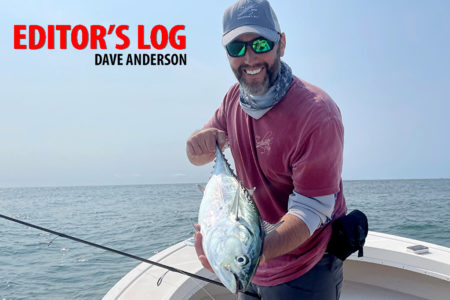Whenever word of a fisheries violation bust begins to make the rounds, the first and loudest complaint is that the slap on the wrist the offenders often receive is little more than a cost of doing business. Armchair cowboys throw blind suggestions like “revoke their fishing license for life,” “confiscate all their gear,” “lock them up for life” and similar, far-fetched forms of punishment. While I can’t say that I’d be terribly opposed to such forms of punishment for egregious and repeat offenders, unless action is taken to change the laws then we’re all doing little more than wasting our collective breath.
However, this past fall, Massachusetts took a step to increase its fines and penalties for certain marine fisheries violations to, “help curb the poaching of marine fish species in Massachusetts.” The details are as follows:
Increased Marine Fishery Fines and Penalties Take Effect
Effective November 7, 2018, new non-criminal, criminal and civil fines penalties for violating marine fishery laws and regulations are now in effect. The new modernized penalty schedule was enacted in 2018 as part of An Act Promoting Climate Change Adaptation, Environmental and Natural Resource Protection and Investment in Recreational Assets and Opportunity, and represents a necessary step to improve fisheries management and conservation.
The fine schedule for non-criminal tickets has been doubled. Previously, the fines were scaled at $50, $100 and $200 depending on the violation; these fines are now $100, $200 and $400. Enforcement officers also may now issue an additional $10 fine on top of the base fine per non-compliant fish. The additional $10 fine applies to all regulated marine fish species except for bi-valve shellfish.
The previously outdated and complicated criminal penalty schedule has been greatly simplified. Now, nearly all criminal violations will result in a $400 to $10,000 fine and up to 2.5 years in jail. However, longstanding criminal fines specific to lobsters, eels and shellfish remain on the books.
Lastly, the law establishes the authority for the Commonwealth to assess a civil penalty of up to $10,000. This new enforcement tool will be reserved for the most egregious marine fishery violations that the Attorney General may decide does not warrant criminal prosecution but does require a more substantial economic penalty than that provided by a non-criminal citation. Such cases would be prosecuted by the Attorney General’s office on behalf of the Division of Marine Fisheries (DMF) or the Environmental Police.
This new penalty schedule, coupled with DMF’s increased efforts to sanction the commercial and recreational fishing permits for fisheries violations, will help curb the poaching of marine fish species in Massachusetts.
While this is a good start, it is just that: a start. I still feel the fines are rather minor when you consider how much money can be made by illegally selling a variety of marine fish species. Further, those prosecuting these case when and if they make it to court must realize the severity of the offenses. Back in 2017 a string of striped bass violations, for example, were reportedly thrown out because the judge didn’t feel that keeping a few extra fish was all that bad of an offense. And while in comparison to other illegal activity such as murder or drug trafficking I can see their point, it doesn’t make the actions of the poachers any less illegal. Until we change the laws, as well as the court of public opinion, then things may never change.


